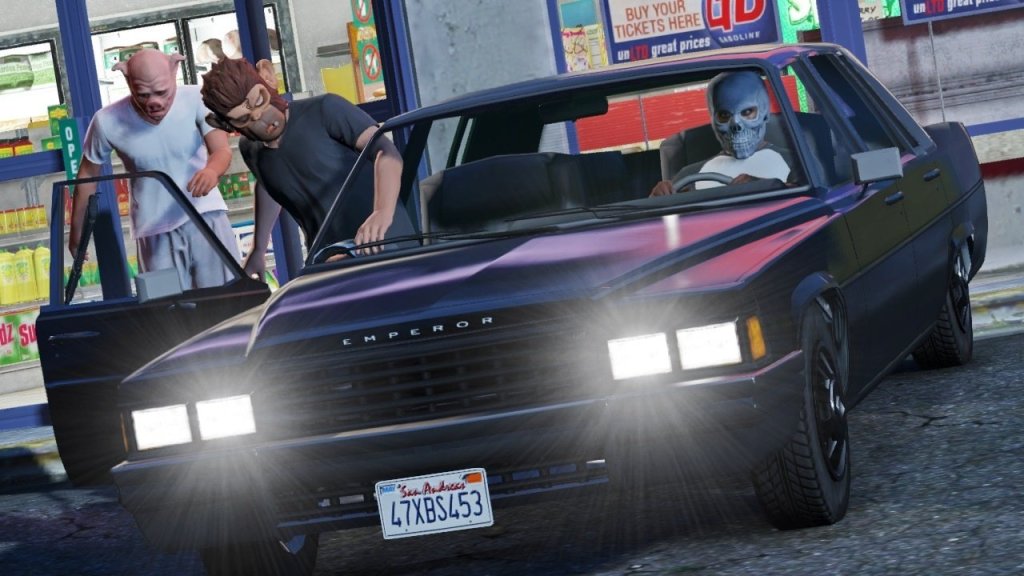Rockstar has weighed in on the microtransaction controversy and the criticisms leveled at GTA Online, explaining why they believe that microtransactions worked in their case and why they are more beneficial than releasing paid DLC.
Rockstar’s director of design Imran Sarwar defended criticisms of GTA Online‘s paid Shark Cards, which gave players in-game currency in exchange for real-world cash, in an interview with GameInformer. With games such as Middle-earth: Shadow of War, Forza Motorsport 7 and Star Wars Battlefront 2 coming under fire recently for their use of microtransactions and loot boxes, GameInformer took Sarwar to task regarding complaints Rockstar has received for GTA Online‘s in-game purchases.
“Every single evolution ever made in the GTA franchise has been treated, at the time, with derision and criticism by sections of the fanbase,” Sarwar said. He then went on to point out how the series’ move to 3D, having a talking protagonist and having an African-American protagonist were also decisions that had previously been criticized, and that as a result, “GTA Online is no different.”
“GTA has stayed relevant because we are obsessed by continuing to evolve and iterate, but whenever we do that, people don’t like it,” he continued. “So all we can do is make what we believe are great experiences.”
Also: The Shadow of War Microtransaction Controversy is a Non-Issue
Sarwar then went on to discuss the impact of introducing traditional DLC outside of microtransactions, and why he believes the latter option is more preferable. “With GTA Online, we decided to give our players access to all updates for free, because it kept our players together and allows to make their own choices about what they want from each update and in what order,” he said. “Everyone has access to everything and no one is forced to pay a lump sum for items they may not want or need. With both GTA IV and Red Dead Redemption, we sold DLC and unfortunately both times, it fractured the audience and helped to kill the games much faster than they deserved.

“With GTA Online, if there’s content people don’t like or want, they can simply ignore it and do something else, while still being in the same core world as everyone else. For us, this model works and has let us keep expanding the experience,” Sarwar continued. “Given the huge amount of stuff we have given absolutely for free, including Heists and all the modes, and all the clothes which cost almost nothing, I really don’t think we can be accused of gouging the player base – people can happily play and never spend a dollar, aside from buying the game.”
Microtransactions helping with the development of a game without fracturing its player base is certainly a viable argument, though perhaps one that won’t be greeted with much positivity given the current hostility surrounding loot boxes and other such divisive practises. However, with Red Dead Redemption 2 set to include its own online component, it seems more than likely that Rockstar will continue to adopt this system into the foreseeable future.
Opinion: I’m not an opponent of microtransactions in theory, as long as they don’t negatively impact upon the game they’re inserted into. However, with publishers becoming increasingly eager to force them into their games, it’s becoming less likely that they’ll be featured in games in any meaningful capacity. GTA Online’s Shark Cards earned an incredible amount of money for Rockstar, and they’re a big reason why microtransactions are so popular now. Hopefully publishers keep looking to find a healthy balance between making money without ruining their developers’ games.







